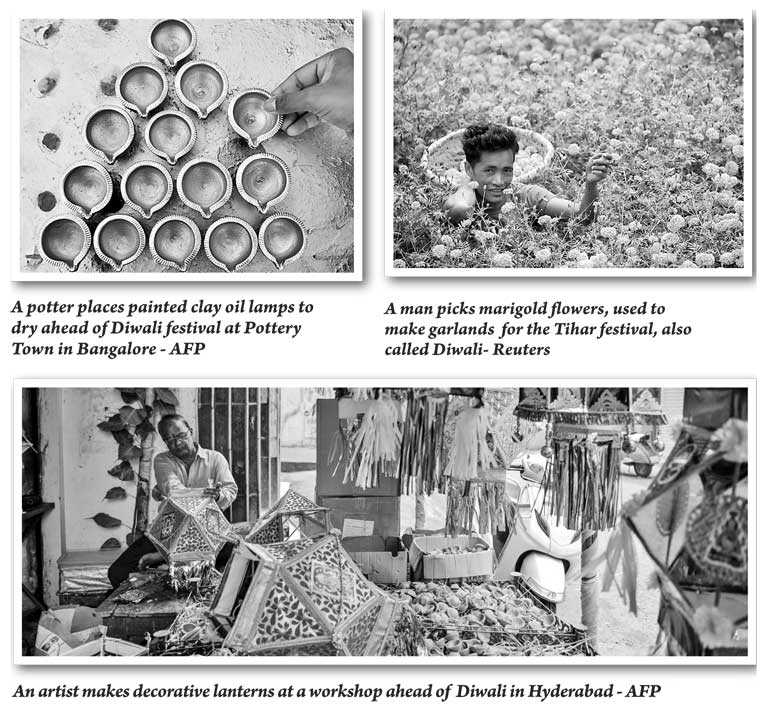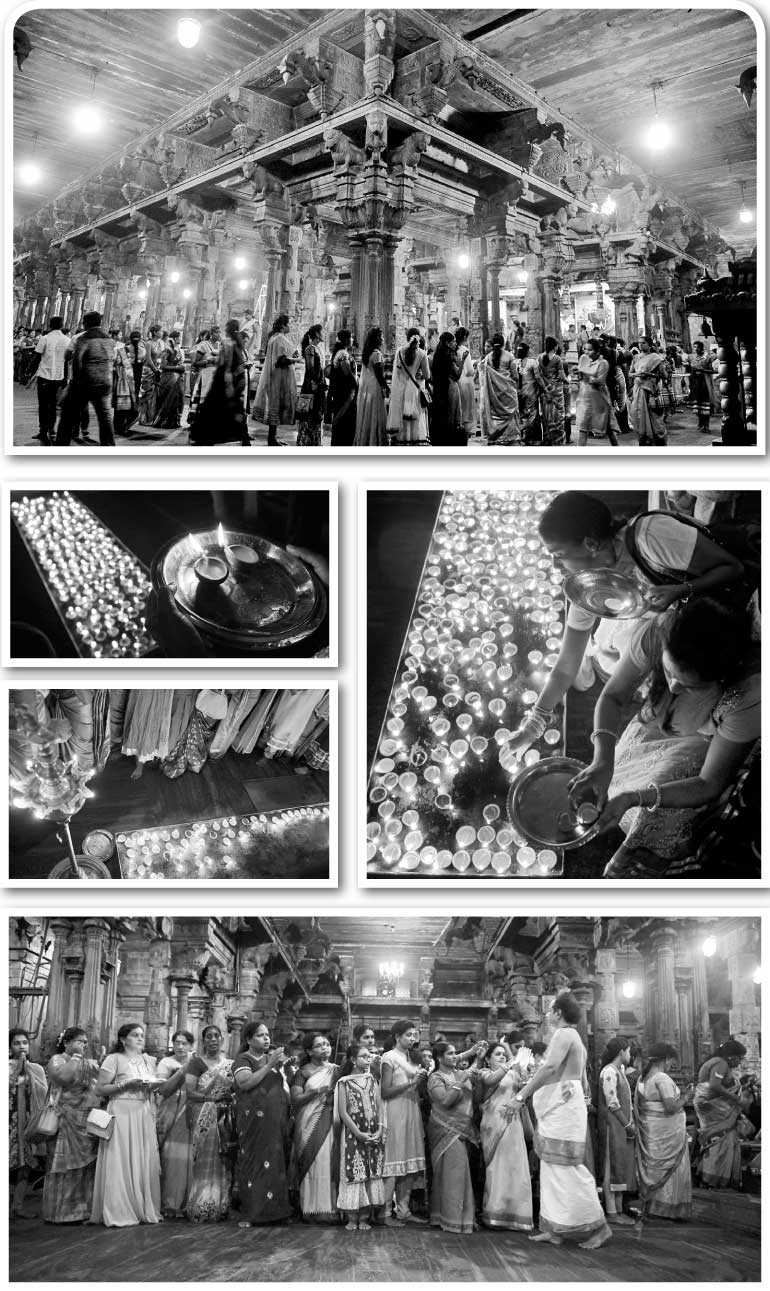Tuesday Feb 17, 2026
Tuesday Feb 17, 2026
Saturday, 26 October 2019 00:21 - - {{hitsCtrl.values.hits}}

Deepawali - also called Diwali - is a festival of lights celebrated annually by the Hindus throughout the world. One of the most popular festivals in Hinduism, it is generally celebrated on 27 October.
Considered the biggest festival in the Hindu calendar, Diwali symbolises victory of light over darkness, good over evil, knowledge over ignorance.
Apart from Hindus, Diwali is also celebrated by Jains and Sikhs. Thus celebrations are mainly held in India where majority of these nationalities live. Those in other countries also plan their own celebrations in the traditional way.
Diwali stands for reaffirmation of hope, a renewed commitment to friendship, religious tolerance, spreading the word of peace and harmony, and celebration of simple joys of life, according to those who practise the faith.
Being a festival of lights, houses, shops, offices and other buildings are lit up for several days.
The ceremony is, in a way, similar to the Sinhala Avurudu when preparations are made days ahead. Houses are cleaned or renovated giving a new look. New clothes are bought. Families come together to celebrate wearing new dresses. They enjoy a meal together, exchange gifts and participate in games.
Described as a festival that brings everything to life with lamps, candles, sweets, gifts and joy, Diwali celebrations continue for four to five days.
The religious significance of Diwali is linked to making offerings to Lakshmi, the Hindu goddess of wealth, fortune and prosperity. She is identified as ‘Shakti’ (energy) of Vishnu, one of the main deities of Hinduism.
Researchers have found the festival mentioned in early Sanskrit texts. This means that it had originated in the Indian subcontinent. On the first day of the five-day festival homes are cleaned and decorations are made on the floor. In some regions in India, Diwali starts on the second day and Lakshmi Puja is made on the third day. It is the darkest night of the month as observed traditionally. The next day is named as ‘Naraka Chatirdashi’ - commemorating the victory of Krishna over Narakusar, the demon king. The birthday of Hanuman is also celebrated on the same day. Poojas and celebrations continue for two more days.
Pix by Shehan Gunasekara
